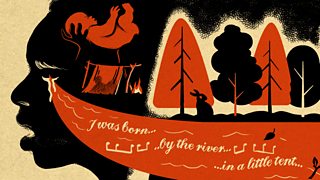Wind of Change
4 Extra Debut. How German rock group Scorpionsβ 1990s power ballad became an anthem for the fall of the Soviet Union. From 2019.
βI follow the Moskva, down to Gorky Parkβ¦ listening to the wind of change.β
The German rock band Scorpionsβ lead singer Klaus Meine was inspired to write Wind of Change at a rock festival in Moscow in the summer of 1989. Politics were rapidly shifting in the Soviet Union at the time as a result of Mikhail Gorbachevβs reforms.
Recalling the peaceful yet revolutionary atmosphere at the concerts, Klaus said βthere was a whole new generation of Russian kids that said the Cold War would be over soon - we could literally feel the world changing in front of our eyesβ.
No one had any idea that the Berlin wall would come down only a few months later. Wind of Change was released in 1990, and has since become an unofficial anthem for the end of the Cold War and the reunification of Germany in 1991. The power ballad is one the best-selling singles in history, and popular all over the world.
Featuring interviews with lead singer of the Scorpions Klaus Meine, Russian rock musician Stas Namin, and true stories of what the song means to people who lived in the former USSR.
Series about pieces of music with a powerful emotional impact.
Producer: Sophie Anton
First broadcast on ΒιΆΉΤΌΕΔ Radio 4 in July 2019.
Last on
More episodes
Broadcasts
- Wed 24 Jul 2019 09:00ΒιΆΉΤΌΕΔ Radio 4
- Wed 24 Jul 2019 21:30ΒιΆΉΤΌΕΔ Radio 4
- Fri 9 Dec 2022 20:30ΒιΆΉΤΌΕΔ Radio 4 Extra
Why Sam Cooke's 'A Change Is Gonna Come' became a Civil Rights anthem
Podcast
-
![]()
Soul Music
Series about pieces of music with a powerful emotional impact



